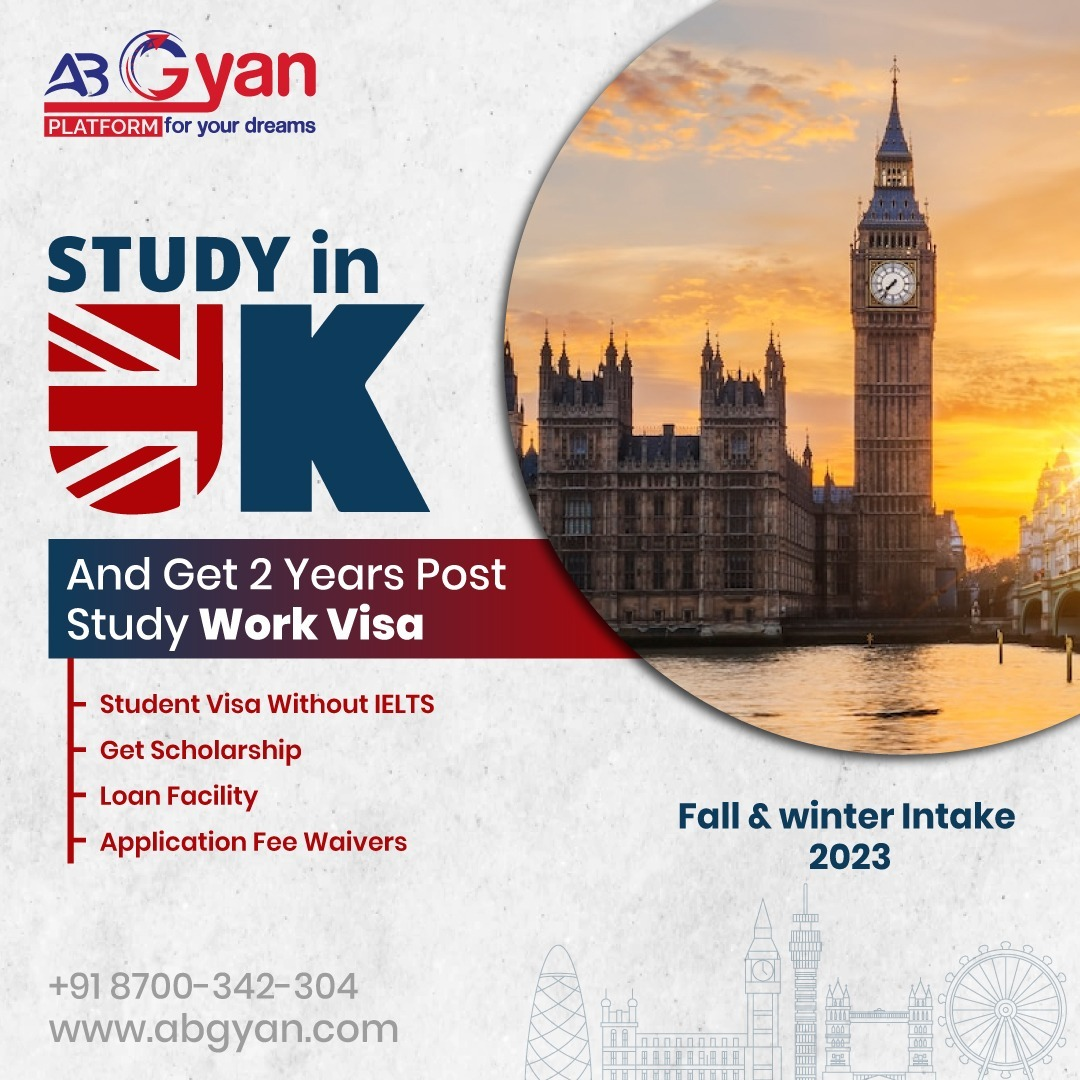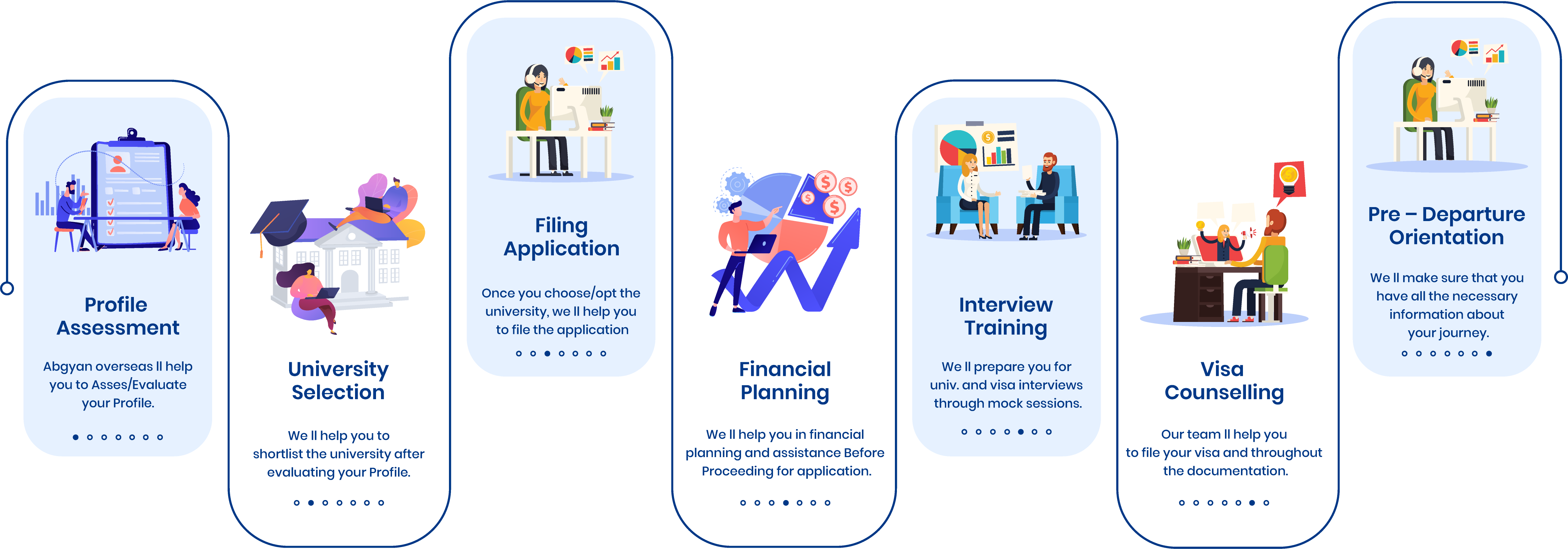Student Success Stories
Feedback from a few students who chose us as their source to study abroad

As per the World Happiness Report, New Zealand ranks as the 8th happiest country globally. The country's education system is very similar to that of the UK. This is the main reason why so many international students prefer to study in New Zealand. As per the report of the Economist Intelligence Unit, New Zealand has the best education system in the world. Moreover, New Zealand universities rank among the top 100 universities globally in 39 out of 46 subjects. Besides this, all of New Zealand's degrees and certifications are recognized internationally.
The country's education system is famous for preparing students for a successful global career through its industry-based curriculum. The students that graduate from New Zealand possess stupendous critical thinking and communication skills and are valuable assets for their employers. In simple words, studying in New Zealand for Indian students after the 12th grade can be very beneficial.
As per the Global Peace Index, New Zealand is one of the safest countries in the world. Furthermore, the country has the right mix of culture, education, and opportunities and is perfect for students that want a successful global career.
New Zealand is simply the most beautiful and magnificent country in the world. The country is famous for its picturesque landscapes, ample growth opportunities, excellent education system, and internationally recognized degrees and certifications. While studying in the country, you will be a part of an amicable society and experience its multicultural environment.
All the universities of New Zealand rank high in the QS World Rankings and Times Higher Education Rankings. Furthermore, the NZQA ensures that all universities maintain the necessary educational standards and provide quality education to their students.
New Zealand's education system emphasizes research-based training rather than giving only theoretical knowledge to students. While studying in the country, you will learn to work independently or in a team at different levels. Besides this, you will learn to implement concepts that you learn in college and use different approaches for solving a problem.
New Zealand provides lots of opportunities for research for international students. The countries have some of the best faculties, laboratories, and equipment in the world. Furthermore, its innovative spirit has made New Zealand a hub of new technologies in fields like healthcare, physics, astronomy, computer science, etc.
The country allows its students to work while studying to cover their living expenses and the cost of studying in New Zealand. As per the rules of the country, an international student can work for 20 hours each week during semesters and full-time during breaks. However, if you enrol yourself in a master's program, then you can work full-time in the country.
New Zealand is a hub of new technologies in fields like healthcare, physics, astronomy, computer science, etc. Moreover, its key sectors mainly focus on the software development industry, film industry, television industry, etc. Besides this, the country is famous for its contribution in sectors like banking, finance, tourism & hospitality, etc.
Employment
New Zealand allows its international students to work 20 hours per week during semesters. However, a student can work full-time (up to 40 hours per week) during the summer holidays. On average, you can earn approximately NZ$13–NZ$17 per hour while working part-time.
Students who graduate from a university in New Zealand are eligible to apply for a job search visa. Moreover, the partner of an eligible student can also apply for a work permit for the duration of the course.
A few things you must know:
Future Scope
New Zealand provides lots of migration opportunities for international students. All the international students that complete a 3-year diploma, or degree program in the country gain points for permanent residency under the skilled migrant category
Once students complete their studies, they can apply for a 1-year job search visa. After getting the job offer, students can apply for either a 2-year work permit or permanent residency in the country. As the country waives off the 2-year work experience requirement for permanent residency if the student has graduated from any of its universities.
Once you become a permanent resident of the country, you will be able to avail all the benefits that residents of New Zealand get. For example, subsidies on tuition fees for higher education, easy loan facilities, etc.
Intake - September
Deadline - Dec-Mar
Intake - January
Deadline - Sep-Nov
Intake - May
Deadline - Jan-Feb
If you have any queries concerning
Education Loan Assistance
Feel free to talk to our Abroad Counsellors.
You can easily make your stay more affordable if you prepare your plan correctly. Many Kiwi universities and colleges offer a wide range of scholarships to their international students to make their stay in the country more affordable. The most important criterion for selecting students for scholarships is their academic scores. But it also depends upon other factors like selected universities, subjects, duration of the course, etc. Moreover, these scholarships/financial aid can be fully or partially paid depending on your academic score and eligibility criteria.


During the academic session, international students can work in Canada up to 20 hours a week, and during vacations, they can work up to 40 hours a week.

Some countries allow only blood relatives to sponsor the student, however, in some countries, any third party can sponsor the student, depending on the country.

As per country law, if you are an international student, you have to show one year of living expenses in advance in your account then only you'll be getting a study permit.

Some countries allow students to stay back as long as 1-3 years, however, some other countries allow only 1 month to 1 year. Depends from country to country.

The minimum time required for PR in some countries is 1 year; however, if we talk about the maximum time required, it is 5 years. It depends on the country you are going to study in.

Again, spouse visas also depend on case to case and country to the country our team of expert counsellors can help you out with that during a counseling session.
| DEGREE TITLE | DURATION | ELIGIBILITY REQUIREMENT | KEY POINTS |
|---|---|---|---|
| Bachelor’s Degree | 3- 4 Year’s | Minimum 70% in SSC (Varies with Stream) IELTS 6.0-6.5 | Focussed on a Particular Subject Examples- BA, B.Sc., B.Ed., BEng |
| Diplomas of Higher Education (DipHE) | 2- 3 Year’s | Below 60% in SSC IELTS 5.5-6.0 | Equivalent to 2 years of Hons. Program Can be Stretched to 3 years for Hons. Degree For Professions such as social work, Medicine. |
| Certificates of Higher Education (CertHE) | 2- 3 Year’s | Below 60% in SSC IELTS overall 5.5.0-6.0 | Equivalent to 2 years of Hons. Program Can be Stretched to 3 years for Hons. Degree Designed for you to build confidence to study at university level |
| Foundation Degree | 2- 3 Year’s | Below 60% in SSC Accepted IELTS 5.5-6.0 | Equivalent to 2 years of Hons. Program Usually opted if you wish to work right after secondary school Can be continued to third year for obtaining Hons. bachelor degree |
| Higher National Diploma (HND) | 2- 3 Year’s | Below 60% in SSC accepted IELTS overall 5.5-6.0 | 2 year certificate If you score well, you can go for the third year |
| Specialized Undergraduate Master’s Degree Program | 4 Year’s | Minimum 70% in SSC (varies with stream) IELTS minimum 6.0 | Integrated course Not common Melds First Degree with Master’s Program |
| Sandwich Degree | 4 Year’s | Minimum 70% in SSC (varies with stream) IELTS minimum 6.0 | One year is dedicated to workplace experience |
Minimum 70% in SSC
Subject BA, B.Sc., B.Ed. ,BEng

To study in New Zealand without any difficulty, you must be aware of the academic year of its educational institutes. All the universities in New Zealand complete their student intakes by February and July. Sometimes, some universities also offer admission opportunities to students in the month of September.
Key highlights
Most universities in New Zealand complete their student intakes in the month of February and July.
All universities in the country have 2 or 3 semesters in their academic year, along with a holiday of 4 weeks in the month of June.
Some universities follow their own schedules and offer summer schools to students in the main holiday period (November–February).
Some universities also offer admission opportunities to students in the month of September.
You must be proficient in the English language if you wish to study in New Zealand.
You must score a minimum of 6.0 -6.5 in the IELTS exam to get admission to a UG course in New Zealand.
You must score a minimum of 6.5–7.5 in the IELTS exam to get admission to a PG course in New Zealand.
Following are the different types of student visa options available for students:
You can work for 20 hours per week part-time while studying in New Zealand.
Yes, you can bring your spouse or any other dependent along with you.
You can submit your student visa application online via the New Zealand Immigration website.
To get a student visa, you will have to submit documents like:
To get admission to a university of New Zealand, you will have to submit documents like:
Yes, you must have overseas student health insurance to study in New Zealand.
Below is a listing of frequently asked questions. If you find any difficulty in solving your queries, then feel free
to get in touch with us.
Feedback from a few students who chose us as their source to study abroad
FOR QUERIES, FEEDBACK OR ASSISTANCE
09:00 AM - 07:00 PM (IST)
FOR VOICE SUPPORT
FOR WHATSAPP SUPPORT

Copyright © 2022 AbGyan Overseas. All rights reserved.